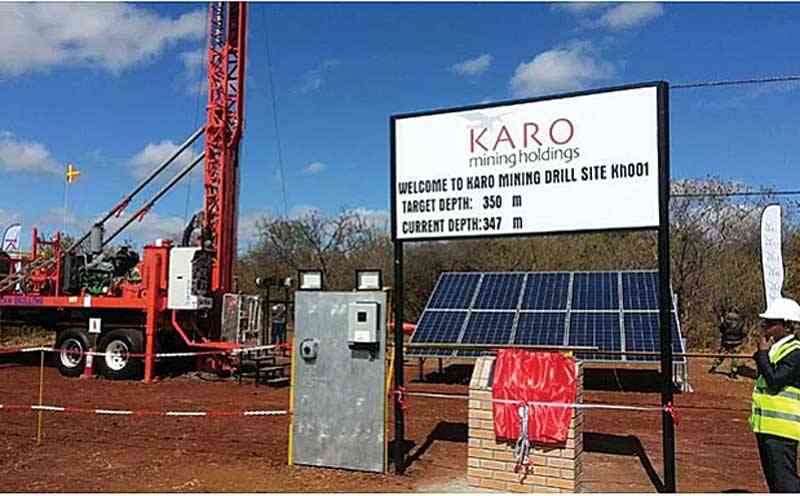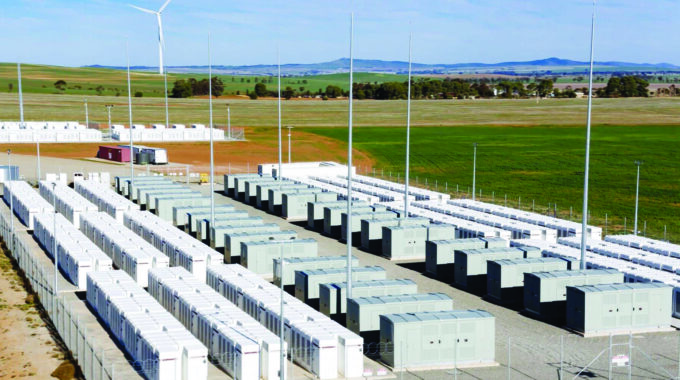Business decries power outages
BUSINESS leaders say the prevailing power outages are crippling production across
various sectors of the economy while the use of generators as an alternative source of
energy remains costly and not sustainable.
Of late, Zimbabwe’s power supply situation has worsened on the back of constant
breakdowns mainly at Zimbabwe’s biggest thermal power plant, Hwange Power Station
as well as the three small thermal power plants.
Speaking after a Cabinet meeting last week, Energy and Power Development Minister
Zhemu Soda said problems at Hwange Power Station and the small thermal power plant
in Harare have been corrected while negotiations were on course for the importation of
electricity as a short-term measure to lessen the impact of the outages while the country
awaits for the results of medium to long-term projects.
Confederation of Zimbabwe Industries (CZI) president Mr Kurai Matsheza said in an
interview that the current power supply situation in the country was now dire as
businesses cannot move forward with production.
“Its really crippling industry, we can’t go forward and you know without power we can’t
start our machinery and not only industry is affected. All facets of life and we are really at
a point where all our predictions to year end will not be realised at this rate.
“We are actually going back and we hear stories that there is 300MW (imported power)
we are not seeing; we have not seen it. From the utility, we don’t want to talk, we want
power. So the power situation at the moment is really crippling,” he said.
The CZI president said it was likely that capacity utilisation will retreat this year from
56,25 percent recorded last year largely on account of the obtaining power situation in
the country.
Capacity utilisation in the manufacturing sector was projected at 65 percent this year.
“In terms of capacity utilisation level for this year, we are going to register regression. I
don’t know the level at this stage because it depends on how sustained these power cuts
are going to be, is it going to be just for one month or to last until the end of the year. It
depends on how quickly they resolve the problem.
Asked if CZI has ever engaged the authorities over reducing outages on industry from the
existing erratic power supplies, Mr Matsheza said: “The real problem my brother has is if
there is no power, there is no power.
“We engage them on a daily basis and they tell us if there is power we give you,
unfortunately there is nothing. We know the difficulties they are telling us and we know
it . . .10 years ago we raised power issues in Zimbabwe even much longer than that.
“If we don’t have a proper development plan of what it is theY are going to do, we are
looking like today in 10 years’ time, it will be the worst situation, so something has to
start happening now, but they are just talking and nothing is happening.”
He said a number of businesses have 24-hour operations and the existing power outages
have disturbed the smooth running of plants and equipment by the productive sector.
Some of the machines, he said, in terms of their efficiency have been compromised as
they were designed to operate 24 hours non-stop while others would take time to build
up after having been switched off.
“It also takes time to switch on the machine; a machine takes time to build up. Maybe
they have got some systems to warm up for 8 hours before you produce.
“And when 8 hours are over, you are into another load shedding schedule so you don’t
produce anything at all. A production process is not like switching off an engine,” said
Mr Matsheza.
In a separate interview, the Zimbabwe National Chamber of Commerce (ZNCC) president
Mr Mike Kamungeremu said: “The outages obviously are disrupting production, you
realise that there are manufacturers with machines that don’t need interruption and
once there is a power cut during a production process in some cases like those in the
manufacturing of plastics, they have to throw away all the raw materials, so there are
serious losses that are associated with the current power outages.”
He said some businesses were now resorting to using generators as an alternative source
of power, but this was not sustainable owing to the costs that came with it.
Mr Kamungeremu said when running a generator, the cost was huge looking at the fuel
prices and the cost of repairing and maintaining the generator.
Asked to quantify the quantum of the cost of production induced by the erratic power
supplies to business, Mr Kamungeremu said: “I do not have the numbers off hand, but I
can confirm to you that the normal cost of power probably at maximum could be around
12c per kilowatt hour at peak.
“We did some analysis sometime back on what the cost of generator power would be and
it was around 30cents per kilowatt hour so you can actually see that it’s more than
double the power.
“So, it’s a serious concern when you look at fuel, repair and maintenance of the
generators, not factoring the cost of lost production, so it’s a serious cost that businesses
are having to bear because of the power outages.”
The Zimbabwe Commercial Farmers Union (ZCFU) president Dr Shadreck Makombe said
wheat farmers have also not been spared from the current power blackouts.
“From the onset we used to have meetings to interface with Zesa (Zimbabwe Electricity
Transmission and Distribution Company) and it would appear that there was an
understanding that farmers should be ring-fenced or there should be in clusters
wherever there are to curb these outages.
“And it appeared by then it was working, then all of a sudden it was like a bolt from the
blue. Even if there is load shedding we are saying it should not be hard on wheat farmers.
“Even if the load shedding is going to be there, may you inform those farmers because
you know wheat needs a lot of watering, so given the situation we are appealing to Zesa
to be sensitive to wheat farmers at this point in moment and we are saying this because
we have got farmers that have been affected in irrigation cycles.
“If you have been affected there is no way you can cover up because wheat goes by stages.
If you have missed up to three or five cycles of irrigation, there is no way you can cover
up, it means the yield is going to go down,” he said.
Dr Makombe said the wheat crop was at different stages of growth across the country.
“The wheat is in different stages of growth depending on when the farmer put the wheat
down, but those that planted early the crop are now at milking stage,” he said.
This year the country has planted close to 80 000 hectares under winter wheat compared
to 66 000ha planted in 2021.-The Herald










